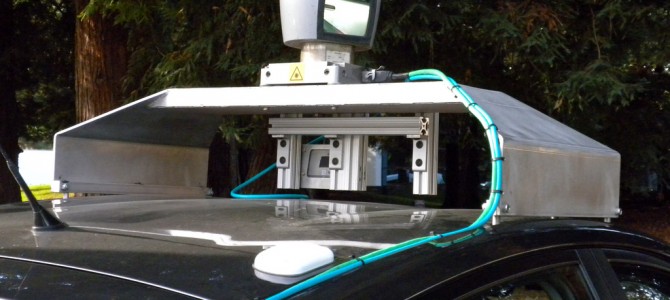
As a general rule, by the time politicians have discovered a supposed problem created by technology, and by the time they have gotten around to imposing new regulations to put a stop to it, the wave of innovation will have moved on and made it all irrelevant.
I remember this very distinctly from the late 1990s, when I spent a lot of time arguing against the foolishness of the Microsoft antitrust case, in which regulators and politicians convinced themselves that the high-tech economy was in danger of falling under the absolute control of a slightly inferior preinstalled web browser. This was just at the point when Larry Page and Sergey Brin were starting up Google, and Steve Jobs had returned to revitalize Apple, and a bunch of other things were happening that were about to make the unstoppable power of Microsoft Explorer seem like the joke that it always was.
The same goes for the politicians’ latest technological worry, the taxi-hailing service Uber, which has made a legal and technological end-run around real monopolies—the big cities’ strict controls on taxi medallions—by connecting customers to independent drivers for hire. The complaint against Uber is that it treats drivers as independent contractors, so it doesn’t offer them benefits or guarantee a minimum wage. They’re treated as small entrepreneurs, responsible for themselves. And politicians just can’t stand that idea.
This is something I’ve described as the Uber Imperative. Big government doesn’t like independent entrepreneurs and small, lean, flexible businesses. It seeks to remake the private economy in its own image, turning every firm into a big, centralized bureaucracy that can be more easily drafted as an enforcer and administrator of the welfare state. So there has been a political campaign to force Uber to take on the role of a traditional employer subject to federal regulations.
This campaign took a step forward recently when a judge authorized a class-action lawsuit against Uber, which could potentially be joined by thousands of drivers demanding higher pay and benefits—from a company that would, under those circumstances, probably be unable to remain in business. Smart plan. Other one-off regulatory rulings have reclassified Uber drivers from independent contractors to employees.
A great step forward for the exploited worker? Maybe not. At the same time as these rulings, we’re getting some interesting reports about Uber’s actual future.
The company recently hired cyber-security engineers Charlie Miller and Chris Valasek, who made a name for themselves by demonstrating that they could remotely hack into a Jeep Cherokee’s electronic systems. They created “software that lets hackers send commands through the Jeep’s entertainment system to its dashboard functions, steering, brakes, and transmission, all from a laptop that may be across the country.” No, Uber didn’t hire them because it wants to sabotage its rivals. Instead, they’re going to work at a new office Uber has opened in Pittsburgh to focus on robotics and self-driving cars, which this team of hackers will presumably seek to protect from outside mischief.
Uber’s CEO has already declared that if Tesla Motors develops a self-driving car by 2020, he will buy half a million of them. But Uber isn’t waiting for someone else to develop them. To staff its own self-driving car laboratory, it hired away a large portion of the robotics department at Carnegie Mellon University. An in-depth New York Times report explains that robotics has been moving along a sliding scale developed by NASA to describe how a technology moves from speculative basic research to the development of a commercial product. Robotics is now reaching the far end of that scale, with self-driving vehicles poised to become a multi-trillion-dollar industry.
The upshot is that five years from now, by the time all these class-action suits have finally worked their way through the courts, or by the time Hillary Clinton or Bernie Sanders or whoever has succeeded in forcing Uber to provide generous benefits to its drivers—there just might be no more Uber drivers. “Getting an Uber” will no longer summon a car with an actual person behind the wheel. The entire concept and category of work is about to become obsolete.
The point is not just that systems of regulation cannot keep up with innovation. It is that the old regulated systems become irrelevant because they are regulated. The regulations which seek to stop “disruption” of the system actually increase the incentives for disruption. The regulations impose higher costs, offering even greater rewards to those able to circumvent them. And when the higher costs are primarily higher costs on labor, this increases the economic incentive for automation. That’s the flipside of the Uber Imperative.
If all of this is too speculative—we know self-driving cars are coming, but we don’t know exactly how soon—consider another example already playing out in the present. Go to some McDonald’s restaurants, and instead of seeing a row of pimply faced teenagers behind a counter, you’ll see a row of touchscreens. And who will be flipping the burgers in the back of the shop? Eventually, no one. One company has already developed a machine capable of making burgers to order at a rate (its designers claim) of 400 per hour. Raw ingredients go in one side and fully prepared burgers already wrapped in a waxpaper bag come out the other end.
So just as politicians imagine they’re going to regulate Uber drivers who will no longer exist, urban politicians presume to offer $15 an hour to minimum wage burger-flippers who will no longer exist. The technology will have moved on, and it will have been encouraged to move on by exactly the kind of regulations and decrees designed to control everything.
Follow Robert on Twitter.









